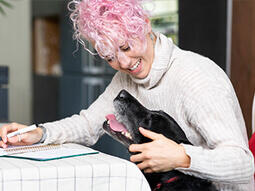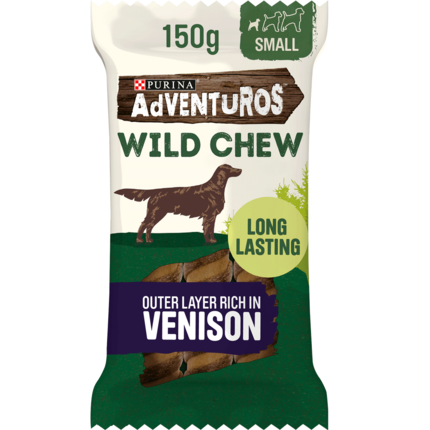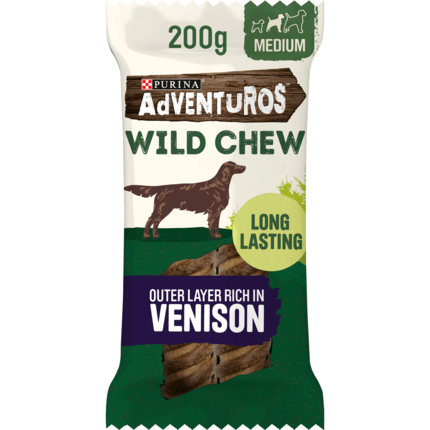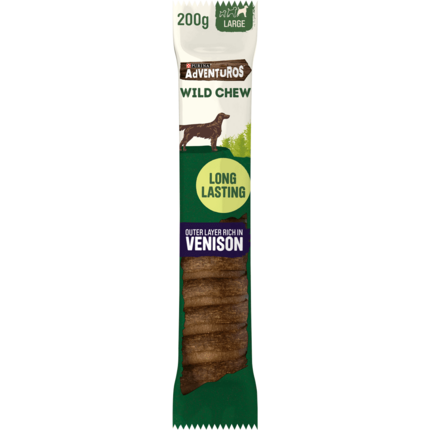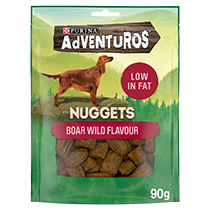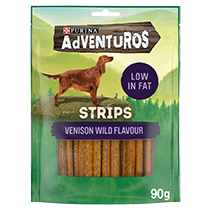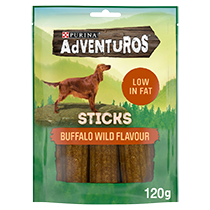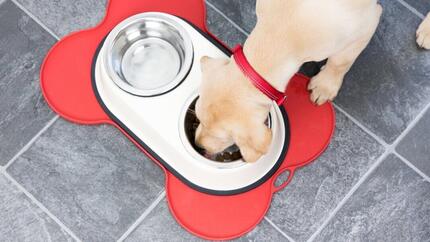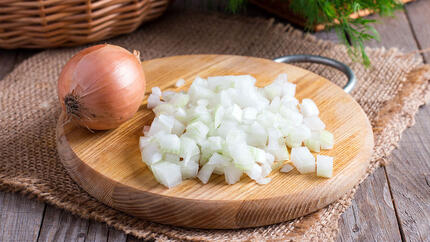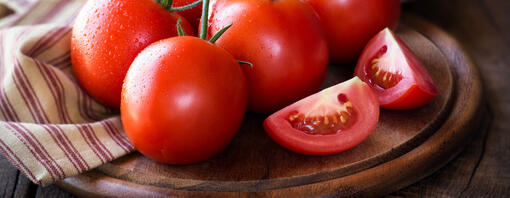
Tomatoes are a staple for many of us. On a daily basis, this versatile ingredient forms the base of several meals from a pasta sauce to a healthy salad. You might also have noticed tomatoes listed as an ingredient in some dog foods, but can dogs eat tomatoes when they’re fresh? Are canned varieties good for them?
At Purina, we care about giving your dog the best possible nutrition, so our pet experts have created this guide all about dogs and tomatoes. Keep reading to find out if tomatoes are good for dogs and when to avoid them entirely.
Can dogs eat tomatoes?
Yes and no. Dogs can eat tomatoes in moderation, but only ripe ones. Don’t offer your dog tomatoes in large quantities or frequently and make sure to avoid feeding them green tomatoes as they contain substances that can be harmful to them.
Tomatoes are in the nightshade family and natural chemicals called solanine and tomatine are found in young, green tomatoes, particularly in the stems and leaves of the plant. Both of these can be harmful in large quantities, and it is best to avoid feeding your pet anything other than the ripe fruits.
If you grow tomatoes in the garden, your dog may try to nibble on green tomatoes or leaves, stems and vines, so it’s always a good idea to keep these fenced off or inside a greenhouse that they can’t access.
Can puppies eat tomatoes?
Like with bigger dogs, puppies can eat ripe tomatoes as they’re non-toxic. They might not add much nutritional benefit but your pup might like a treat every now and then. Never give your pup unripe or green tomatoes.
Are tomatoes poisonous for dogs?
Ripe tomatoes are not poisonous for dogs as they’re non-toxic. However, green tomatoes can be poisonous if given in large quantities because they contain natural chemicals called solanine and tomatine. In line with this, make sure your dog doesn’t eat the stems or leaves of tomatoes either.
Are tomatoes good for dogs?
Tomatoes can make a good, occasional, relatively healthy treat, but too much can cause stomach upsets. It’s important to note that tomatoes shouldn’t be added to your dog’s diet on a regular basis, as they will already be getting all the nutrients they need from a complete and balanced diet.
If your dog has gastrointestinal issues like gastroenteritis, it’s better to avoid tomatoes altogether as they may aggravate a sensitive stomach.
When are tomatoes bad for dogs?
Like we briefly mentioned previously, young green tomatoes can be harmful for dogs. Similarly, in some cases, when too much of the green parts of the tomato have been consumed, dogs may get tomatine poisoning, but this is very rare. Some of the symptoms your dog will display if they have this will include:
- Gastrointestinal upset
- Weakness
- Tremors
- Seizures
- Lack of coordination
- Abnormal heart rate
If you notice your dog displaying any of the symptoms listed above, contact a vet immediately.
Can I give my dog tomato sauce and soups?
If you’re wondering if dogs can eat tomato sauces and soups, the answer is no. Always avoid jars or canned tomato sauces and soups as these will contain additives which may be harmful for your dog. They will likely have sugar, salt and even harmful ingredients such as garlic and onions.
Can dogs eat tinned tomatoes?
Dogs cannot eat tinned or canned tomatoes. This is because they contain preservatives, salt (high doses of sodium can cause dehydration) and added ingredients (like onions and garlic) which are toxic for your dogs. The same goes for pasta sauces and other tomato sauces.
How can I feed tomatoes to my dog?
Make sure you only choose organic (these won’t contain pesticides), fresh tomatoes which are bright red in colour. Prior to feeding ensure you remove any of the green bits including the stem, leaves and vines. Once you’ve done this, wash them before serving to remove any potential dirt. Initially, only offer your dog a small amount to see how they react – it’s not uncommon for most dogs to dislike the texture and taste of tomatoes though, so don’t be surprised if they just spit it out!
Now you know the answer to can dogs eat tomatoes! Looking for more dog feeding advice? Read our guide on dogs and strawberries, next!

